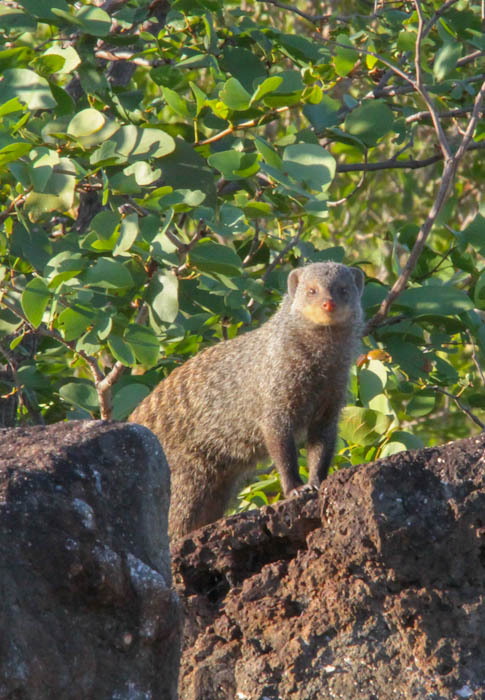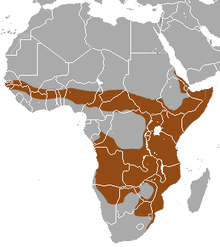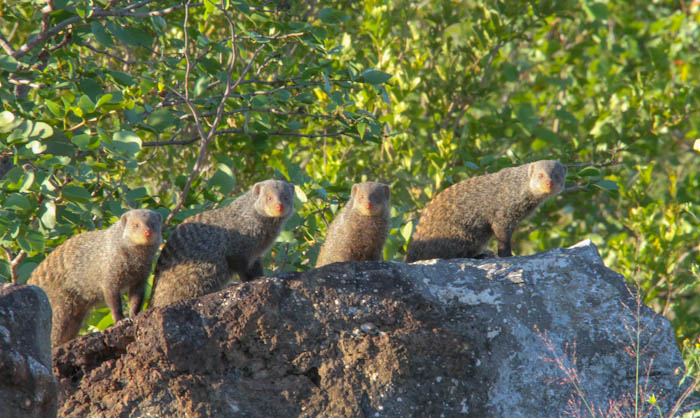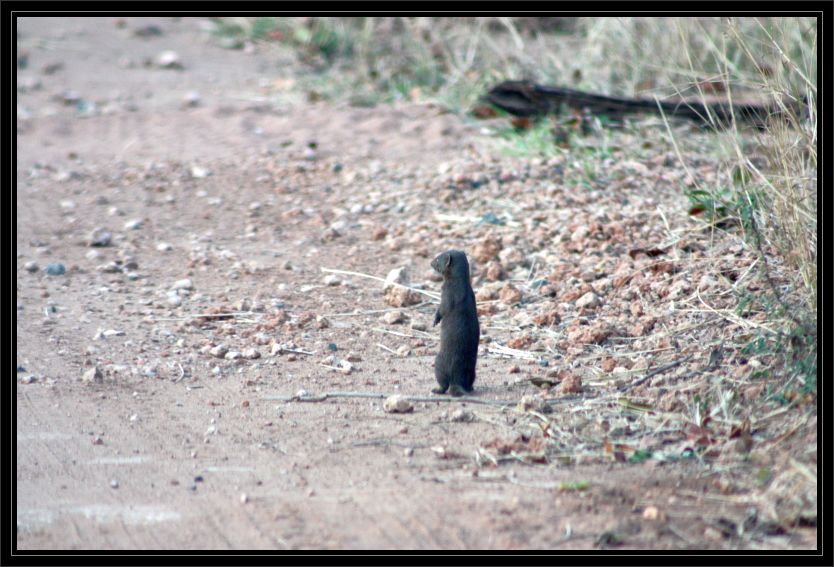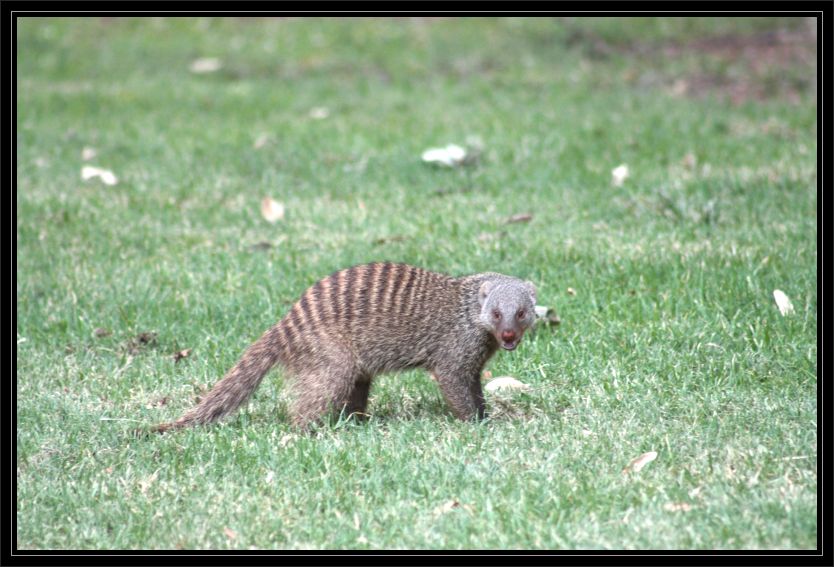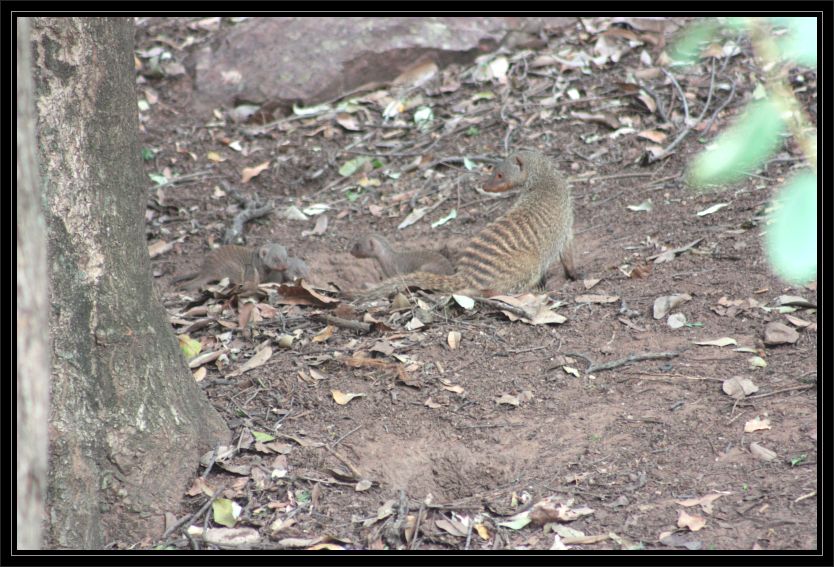The Banded Mongoose lives in permanent and cohesive packs of between 6-40 individuals, consisting of on average 15 adults with their offspring. Group sizes in this species is largest for all carnivores. Both males and females transfer to new packs, and in this manner population gene flow is accomplished.
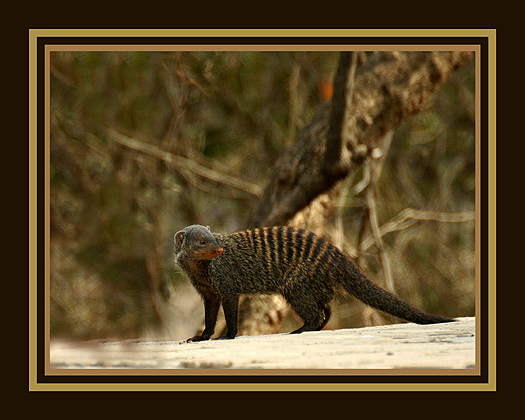 (Kruger)
(Kruger)May 14, 2013 Press Release from the National Science Foundation
The newest public health threat in Africa, scientists have found, is coming from a previously unknown source: the banded mongoose.
Leptospirosis, the disease is called, and the banded mongoose carries it.
The banded mongoose, although wild, lives in close proximity to humans, sharing scarce water resources and scavenging in human waste. The disease-causing pathogen it carries can pass to humans through soil or water contaminated with infected urine.
Leptospirosis is the world's most common illness transmitted to humans by animals. It's a two-phase disease that begins with flu-like symptoms. If untreated, it can cause meningitis, liver damage, pulmonary hemorrhage, renal failure and death.



